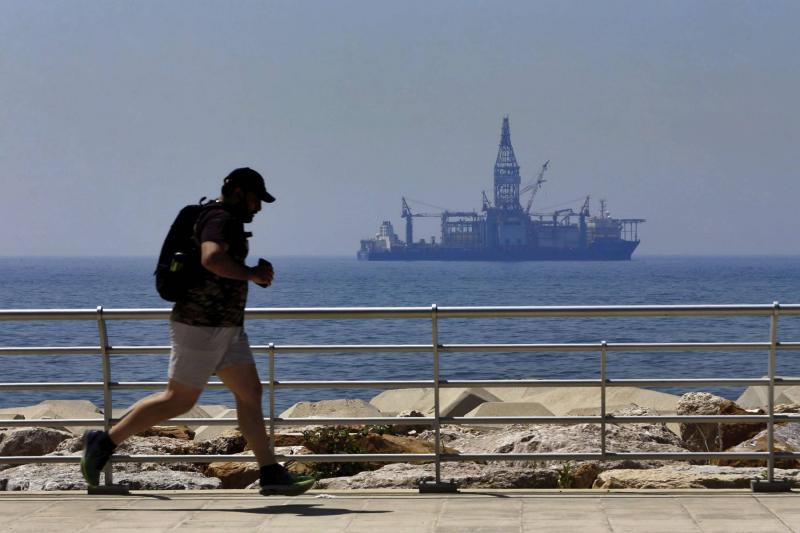DAMASCUS – Russia has joined in the race for eastern Mediterranean gas, taking advantage of an earlier agreement with the Syrian regime.
This nine year-old deal allowed Russian companies to explore for oil and gas in Syria’s territorial waters in exchange for Moscow’s direct military intervention that saved the regime of President Bashar Assad from collapse.
The Russian activation of the 2013 exploration agreement in the eastern Mediterranean has put Turkey under pressure and also sparked angry reactions in Lebanon.
This new twist in the regional tussle for sea acreage has been triggered by a fresh agreement signed earlier this month by Damascus and Moscow authorising exploration in a disputed area between Lebanon and Syria. Pro-regime media in Syria reported that Damascus had inked a deal allowing two Russian companies, Capital Limited and East Med Amrit, to begin exploration for oil and natural gas off the Syrian coast.
Local media said that the regime had “granted Capital an exclusive right to explore and develop oil in the offshore Block Number 1 in Syria’s economic zone in the Mediterranean off the coast of the Tartous governorate to the southern Syrian-Lebanese maritime borders in an area of 2,250 square kilometres.”
Russia’s joining the quest to tap the considerable gas reservoirs thought to exist below the eastern Mediterranean seabed is likely to cause a major disruption of relations in the region, not least because the area in which Russian companies are being allowed to operate is disputed by the Lebanese.
It also pits Moscow directly against the countries of the Eastern Mediterranean Gas Forum, especially Israel, which is still negotiating the demarcation of its own border with Lebanon without making any progress.
Russia’s sudden involvement in the eastern Mediterranean gas dispute creates a new dilemma similar to the one created by last November’s Turkish agreement with Libya’s Government of National Accord (GNA) in Tripoli. The Government of National Unity (GNU) has since replaced the GNA but has yet to make clear its position on its predecessor’s controversial maritime border demarcation and Exclusive Economic Zone deals with Ankara which have already strain Libya’s relations with Egypt, Israel, Greece, Cyprus and the wider EU.
Analysts say Russia has made a calculated move aimed at ensuring a discrete comeback to a strategic region. After its military intervention in Syria in 2015, and later in Libya, its sudden intervention in the gas conflict will make it a key player in any negotiations aimed at drawing the future map of the region.
But Russia’s action is bound to have an impact on the regional alliances already forged as a result of the East Med gas conflict. Turkey, which has closely coordinated its actions with Russia in Syria and Libya, will find itself in a difficult situation as its Russian ally now promises to be a tough competitor in offshore energy exploration.
All of these factors could unsettle Turkey’s own plans to reshape the future of the region. It is confronted with two options: either accept the new reality reluctantly or move to abort the Russian-Syrian exploration deal.
Lebanese sources told The Arab Weekly that the Syrian announcement of the new Russian agreement explains to a great extent the rapid Turkish involvement in Lebanon, at a time when the country is suffering from strategic neglect by other Arab countries.
These sources do not rule out that the Turks had advance intelligence of what the Russians were planning and that this explains Ankara’s offer of help to Lebanon.
During a visit by a Turkish ministerial delegation to Lebanon after the Beirut port blast last August, Turkish Vice President Fuad Aktay declared that his country was ready to rebuild the seaport and that in the meantime the Turkish port of Mersin (191 nautical miles away) is “at the service of the Lebanese.”
In December 2013, Damascus signed a major agreement with Russia to explore for oil and gas in Syria’s territorial waters, as part of a contract lasting 25 years. The cost of drilling and exploration was estimated at $100 millions.The original deal for gas exploration involved Russia’s SoyuzNefteGaz .
Syria said at the time that Russia would finance these activities based on the understanding that it recovers its expenditures from production.
The activation now of the agreement with Russian companies has caused an uproar in Lebanon after it became clear that the maritime borders drawn by the Syrians, especially in Block No. 1, overlap significantly with Block No. 1 and Block No. 2 on the Lebanese side, impinging approximately 750 square kilometres within Lebanon’s maritime border.
Following the disclosure of the terms of the new deal, Lebanese politicians have called for the clear demarcation of the maritime borders with Syria, in a similar way to the border demarcation it has sought with Israel.
The head of the Lebanese Forces party, Samir Geagea, called on the authorities of his country to request the United Nations define the sea borders with Syria, or resort to the International Court of Justice, if Bashar Assad’s regime will not accept international arbitration.
During a press conference north of Beirut, Geagea accused the Syrian regime of trying to seize illegally 750 square kilometres of Lebanese waters, pointing out that the Assad government had “objected to Lebanon’s proposal for oil and gas exploration in 2014.”
Geagea urged Lebanese President Michel Aoun and Prime Minister Hassan Diab to hire a law firm to send a warning to the Russian companies involved in the exploration to inform them that the Syrian block runs into Lebanese waters.
Source: Arab Weekly



